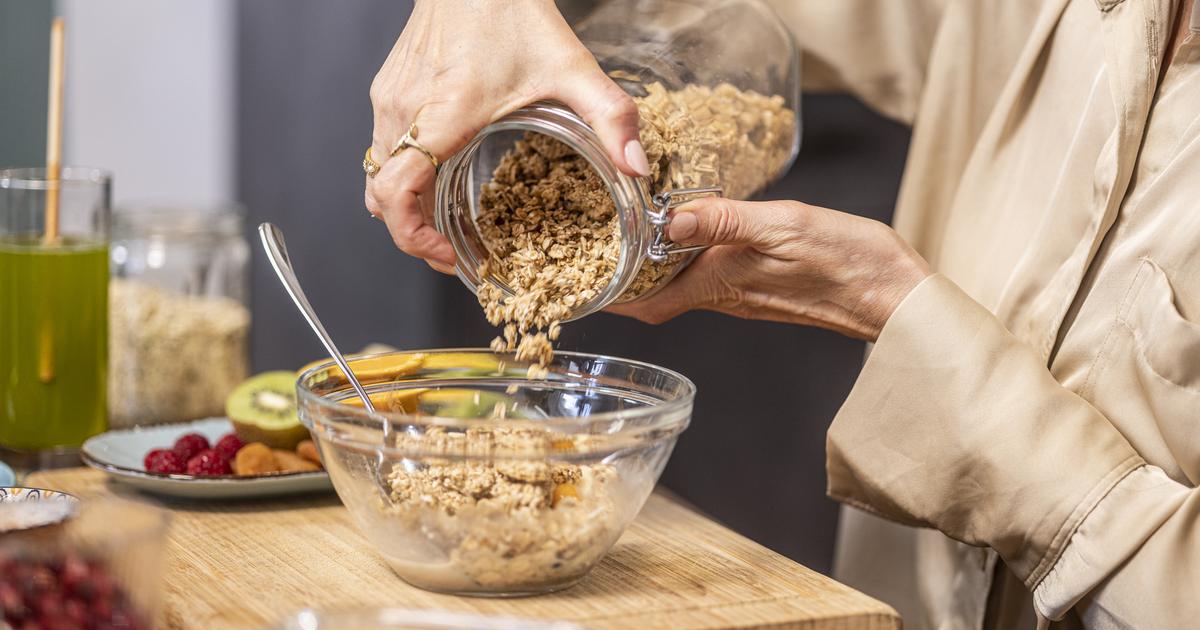Rely on the Nutri-Score, refer to an organic label, check the caloric intake ... The criteria for knowing which products to choose on the supermarket shelves to eat healthy and balanced are multiple and it can be difficult to navigate. Two specialists give their practical recommendations to choose the best options for our health.
To discover
- Leonardo DiCaprio > Podcast: Forbidden to over 25s
In video, to have a healthy brain, here is the diet to follow
Arrive prepared
It's not all about it. For Mélanie Deschasaux-Tanguy, a researcher in nutritional epidemiology at Inserm (CRESS-EREN), the way to choose the healthiest foods at the supermarket is to first establish a shopping list. It thus makes it possible to develop balanced menus and limit compulsive purchases. According to the health nutritional recommendations, "spread over a week, our menus must include two sources of legumes, (lentils, chickpeas, white beans, red beans or beans, for example), two sources of fish (including a fat such as salmon and a leaner such as cod), and a maximum of 500 grams of meat (the equivalent of two minced steaks)", she sums up. In parallel, it is necessary to consume daily dairy products, starchy foods (preferably whole), and fruits and vegetables.
See alsoHow the ultra-processed diet gradually nibbles the brain
Avoid processed products and favor raw foods
If they are sometimes tempting for the time saving they allow, processed or ultra-processed products harm our health. "The components used to prepare and store them are often indigestible or difficult for our body to assimilate. Ultimately, their consumption is associated with digestive disorders, cardiovascular diseases such as hypertension, and even certain cancers, "says Dr. Serge Hercberg, nutritionist and epidemiologist.
To guard against this, preference is given to so-called raw foods, that is to say that they have not undergone any industrial processing. "The food is the most interesting for our health when it is closest to its natural form," comments the doctor. This principle applies to cereals and starchy foods such as rice, pasta and bread, often made with so-called refined flours, that is to say processed to be as white and thin as possible. 'The elements of nutritional interest, namely the germ and the bran, shall be removed. It is therefore preferable to choose the "complete" alternatives on the shelves, which are closer to the natural product and provide more nutrients to the body," advises Dr. Hercberg.
Read labels
To spot processed products and avoid them, just take a look at their label. This bans those mentioning ingredients with scientific names, such as those composed of numbers. Also, if the list of ingredients of the product does not resemble the one we would follow if we reproduced the recipe, the product is to be left aside.
The order in which ingredients are listed is another useful clue. "They must be presented in descending order of quantity in the product," says researcher Mélanie Deschasaux-Tanguy. If the first ingredient mentioned on a can of tomato sauce is sugar, for example, that must be a challenge." The specialist also invites to identify organic labels and indications of "reasoned" agriculture, that is to say limiting the use of chemical inputs, to have a composition as natural as possible.
Do not boycott canned and frozen foods
Contrary to popular belief, canned and frozen foods are options to be seriously considered. "All studies prove that they are just as interesting for the body, without nutritional loss and they allow you to eat a balanced diet at a lower cost," says Serge Hercberg. And for good reason, by being kept in the open air, the nutrients and vitamins of fresh products degrade faster.
Understanding the Nutri-score
Introduced in France for the first time in 2017, the Nutri-score is an indicator for consumers to quickly assess food quality. The latter are classified into five categories represented by the letters A (the best Nutri-score), B, C, D and E (the worst Nutri-score), according to their nutritional interest. "The higher their salt, sugar or fatty acid content, the lower the Nutri-score, symbolized by the letter D or E. On the other hand, if the food contains essentially important elements of our diet, such as fiber, protein and legumes, then its score is higher and is close to the letter A, "says Mélanie Deschasaux-Tanguy. "The idea is not to definitively ban all products with low Nutri-score, rebounds Serge Hercberg, this tool is rather used to identify the healthiest product among the available variations."
Be careful, however, the Nutri-score does not take into account the mode of production of the food. It therefore does not make it possible to know if the product is ultra-processed, if it has been the subject of pesticide use, or additives.






